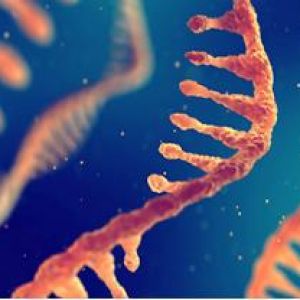Common Questions About the COVID-19 mRNA VaccinesPosted by Candy Swift on April 29th, 2021 mRNA vaccines against COVID-19 are being vaccinated on a large scale all over the world. As this term may be unfamiliar to most people, mRNA vaccines actually are not born out of nowhere, but have been prepared for over 30 years. The mRNA vaccine for COVID-19 is the first mRNA vaccine widely vaccinated by humans. It has set a precedent for mRNA vaccines. It has been continuously discussed after it has been marketed. We have never stopped worrying about its potential risks. So what exactly are mRNA vaccines and why are they promising to fight the novel coronavirus, SARS-CoV-2? The following 4 topics may provide answers to these questions.
The working principle of a vaccine is to "train" the human body to recognize and respond to proteins produced by pathogenic organisms such as viruses or bacteria. Traditional vaccines consist of small doses or inactivated whole pathogenic organisms or proteins produced by them, which are introduced into the human body to stimulate the immune system to respond. In contrast, mRNA vaccines induce the human body to produce part of viral proteins. In order to make mRNA vaccines, scientists create a synthetic version of mRNA, which the virus uses to build its infectious protein. This mRNA is delivered into the human body, and human cells read it as instructions to construct the viral protein, thereby producing some virus molecules by themselves. These proteins are independent, so they will not assemble into viruses. The immune system will then detect these viral proteins and start a defensive response to them.
Our immune system has two parts—innate (our natural defenses) and acquired (formed when we contact with pathogens). Traditional vaccine molecules usually only act on the acquired immune system, while the innate immune system is activated by another component called an adjuvant. Interestingly, the mRNA vaccine can also trigger the innate immune system, providing additional defenses without adjuvants. Moreover, by allowing the body to produce viral proteins, mRNA vaccines cut part of the manufacturing process and would be easier and faster to produce than traditional vaccines. In such an urgent situation of the COVID-19 epidemic, this is of great positive significance. "Various innate immune cells are activated by mRNA," said a scientist from Creative Biolabs, a biotech company focusing on COVID-19 vaccine development services, "this prepares the immune system for harmful pathogens, so this type of immune response is very strong. However, to understand this response, how long it can provide protection, and whether there are any drawbacks, there are still much more work to be done." · mRNA Vaccines Won’t Change Human Genes Recently, a pharmacist who deliberately sabotaged more than 500 doses of Moderna vaccine at Aurora Medical Center in Wisconsin, USA, has been arrested. He claimed that the reason for destroying these mRNA vaccines was that he believed that "these vaccines will mutate human DNA." In fact, there is no need to worry about this problem. As the cell nucleus has a membrane and nuclear pores on the nuclear membrane, mRNA in the vaccine cannot enter the nucleus at all, and cannot touch the DNA deep in the nucleus. Another reason why mRNA is not so terrible is that it is actually super unstable. It may be difficult for us to perceive the instability of RNA in daily life, but biologists must have a deep understanding of it. For example, there will be a clean area in the laboratory that is only used for RNA extraction, and it may not even be allowed to speak during the experiment since RNase (ribonuclease), which can easily degrade RNA, is everywhere in the air, in our saliva, on our skin, etc. · There Are Still Unknowns The latest study released by the Centers for Disease Control and Prevention (CDC) on March 29 pointed out that both Moderna and Pfizer-BioNTech's two mRNA vaccines can prevent 90% of COVID-19 infections. The results show strong evidence that their vaccine can prevent all kinds of infections, including asymptomatic infections and pre-symptomatic infections. However, since mRNA vaccines are only now being widely used in humans, there are quite a few unknowns. Questions include whether the protein selected for the vaccine is a suitable protein molecule to prevent coronavirus infection in the human body, how specific the immune response is to this particular coronavirus, how long the immunity will last, and whether it will cause serious side effects in a long term and so on. This epidemic has allowed scientists to obtain big data support after the mRNA vaccination, and provide more adequate feedback on the development of vaccines. In the future, humans will have a deeper understanding and control of mRNA vaccines. Like it? Share it!More by this author |


